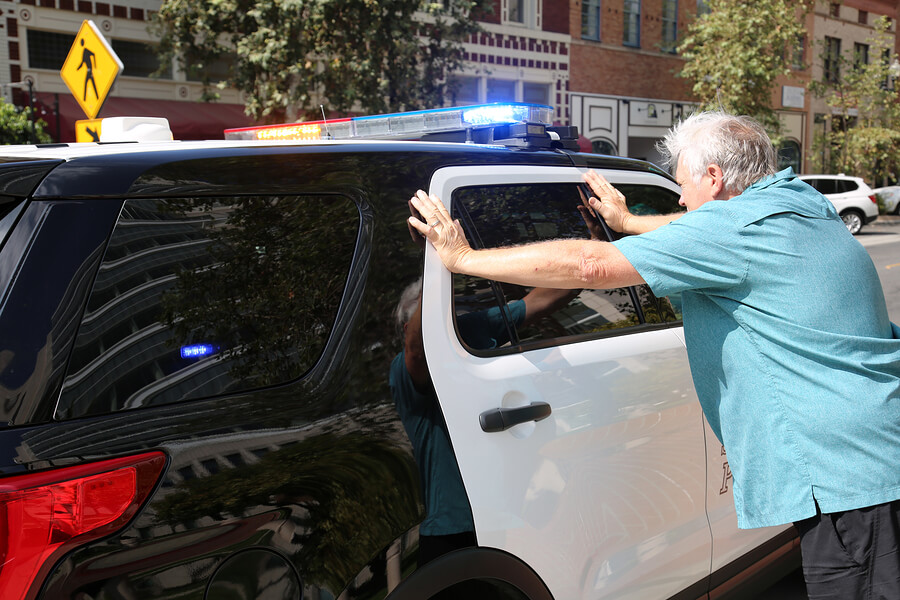Being accused of a crime is difficult, but being convicted and jailed is an entirely different scenario. A false conviction can see an innocent person spend much of their life behind bars for a crime they did not commit.
Improvements in investigative tools such as forensic science and DNA testing have helped wrongly convicted people defend themselves in court and seek exoneration. For those wrongly jailed, many have been able to clear their names after a prison sentence. Many go so far as to plead guilty to a lesser sentence, knowing they were totally innocent.
Some of these individuals have been in jail for many years, without the means to prove that they were tried and convicted improperly. With the help of these improved tools and techniques, and nonprofit organizations like The Innocence Project, people wrongly convicted are now able to seek exoneration.
What Is Exoneration?
To be exonerated is to be cleared of an accusation, either through the presentation of evidence of innocence, a defect in a conviction, or other actions that completely clear an individual of the charges that have been levied.
For instance, if someone is charged in a robbery because of a garment they were wearing, submitting evidence of the person’s whereabouts without the incriminating garment shows that another individual wearing it committed the crime. The evidence of the accuse whereabouts will exonerate him or her of the charges, and will be dismissed.
How Does This Happen?
There are a number of reasons why someone could be wrongfully charged and convicted. The most common are:
- Witness identification of perpetrator
- Zealous police and prosecutors
- Police misconduct
- False confessions
- Perjury
- Faulty forensic evidence and inadequate testing
- Racial bias
These cases are being reviewed and reworked by some prosecutor’s offices with Conviction Integrity Units (CIUs), and others are assisted by nonprofit innocence organizations like The Innocence Project and the National Registry of Exonerations, whose work is to free wrongly convicted individuals.
Statistics on DNA Exoneration
Since the introduction of DNA testing for criminal cases in 1989, The National Registry of Exoneration estimates that more than 2,500 individuals have been freed, and more than 22,000 years of life were lost behind bars due to wrongful convictions.
The registry’s report on 2018 reveals the following:
- CIUs were responsible for 58 exoneration
- “Professional exonerator,” nongovernmental organizations such as the Innocence Project, were responsible for 86 exoneration
- CIUs and organizations working together were able to exonerate 45 people in 2018
- A total of 31 individuals were exonerated in Chicago on drug and weapons charges as a result of an investigation into corrupt police officers led by Sergeant Watts.
- Illinois had the highest number of exoneration, at 46, due to the Sgt. Watts affair. Texas and New York are tied in second place at 16, Michigan in third place with 9 and California with 6.
- The DNA exoneration in 2018 totaled 23, about 15% of the overall total, with 60% for murder cases, 7% for sex crimes, one case for attempted robbery, and one case for kidnapping and sexual assault
- Seventy cases in 2018 were individuals who were wrongly incarcerated and no crime actually occurred. This included one murder case for which the defendant spent 25 years on death row for the murder and assault of a 21-month old girl. The injuries that indicated his guilt were actually unsuccessful medical procedures by emergency room physicians.
- Texas had 363 exoneration in 2018, the highest rate in the US
- The bulk of US exoneration in 2018 came from just four counties: Harris County (Texas), Cook County (Illinois) Kings (Brooklyn) and Dallas counties.
- Nationwide, the city with the second most exoneration per capita from wrongful convictions is New Orleans, Louisiana.The state incarcerates at nearly twice the national average, with many incarcerated who haven’t even been convicted of a crime.
The Most Popular: Drug Charges
Exonerated prisoners are frequently the target of drug charges, particularly for African-American defendants, who are five times as likely to be imprisoned for drug possession as white defendants. Innocent African-Americans are 12 times as likely to be convicted of drug crimes as innocent whites, even though the rate of illegal drug use is about the same for both groups.
In Harris County, Texas, which includes the City of Houston, the crime labs take an extra step of testing drugs that are seized during arrest, even if the accused pleads guilty. In many cases, the substances are found not to be illegal drugs. As a result, 48 of Texas’ 58 exoneration in 2016 were in Harris County.
The CU for the DA’s office began calling for the backlog of drug cases to be cleared in 2014, which prompted crime lab testing of substances taken during the arrests. As a result of the testing, the first 48 defendants were exonerated, and 10 were exonerated in 2017.
Harris County’s African-American community makes up 20% of the population and account for 62% of the exoneration.
Defense or Exoneration? Contact Attorney Dewey P. Brinkley
Dewey P. Brinkley is a former Wake County Assistant District Attorney who can defend you or your loved one against wrongful criminal charges and work for exoneration. Call Mr. Brinkley today at 919-832-0307 or use our contact page to schedule your free consultation.


 In North Carolina, simple affray means that you have committed three things:
In North Carolina, simple affray means that you have committed three things: “If any person shall willfully and unlawfully resist, delay or obstruct a public officer in discharging or attempting to discharge a duty of his office, he shall be guilty of a Class 2 misdemeanor.”
“If any person shall willfully and unlawfully resist, delay or obstruct a public officer in discharging or attempting to discharge a duty of his office, he shall be guilty of a Class 2 misdemeanor.” Forgery involves creating an imitation of an object of value, including a document, a signature, or other item with the sole intent of committing some kind of fraud for gain. This can include things like driver’s licenses and ID cards, birth certificates and other official documents, prescriptions, as well as things like contracts. One of the most common forms of forgery is when someone signs another person’s name on a check or has a fake ID printed.
Forgery involves creating an imitation of an object of value, including a document, a signature, or other item with the sole intent of committing some kind of fraud for gain. This can include things like driver’s licenses and ID cards, birth certificates and other official documents, prescriptions, as well as things like contracts. One of the most common forms of forgery is when someone signs another person’s name on a check or has a fake ID printed. Obtaining a prescription drug by forgery
Obtaining a prescription drug by forgery An assault in North Carolina is classified as giving another party (the “aggrieved” party) the fear of bodily harm, including the possibility of death. Acting in a potentially threatening manner or communicating threats of harm without touching another person is classified as “assault.”
An assault in North Carolina is classified as giving another party (the “aggrieved” party) the fear of bodily harm, including the possibility of death. Acting in a potentially threatening manner or communicating threats of harm without touching another person is classified as “assault.” North Carolina General Statutes
North Carolina General Statutes